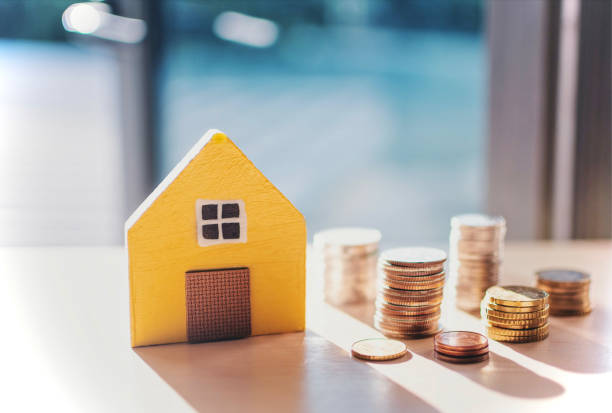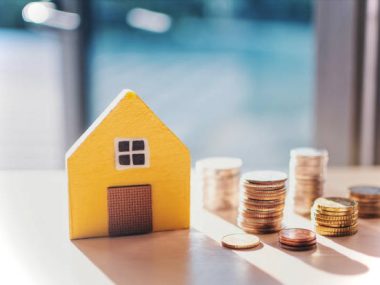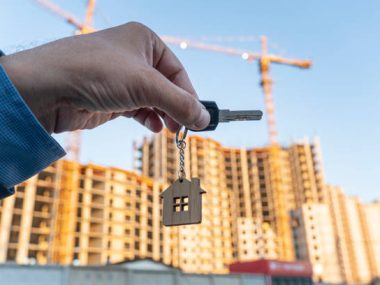Is house insurance cheaper without a mortgage? The decision to own a home is one of the most significant financial choices individuals make in their lifetime.
While the benefits of homeownership are well-known, including the sense of stability and the potential for building equity, the associated expenses can vary widely.
One crucial aspect of homeownership is house insurance, a safeguard against unforeseen damages and losses.
A common question that arises is whether house insurance is cheaper without a mortgage.
This inquiry stems from the desire to understand the potential impact of mortgage status on insurance costs.
In this article, we will delve into the factors that influence house insurance premiums, explore the relationship between homeownership and insurance expenses, and provide insights to help you make informed decisions about house insurance, whether you have a mortgage or own your home outright.
Also Read:
How Does a Reverse Mortgage Work in Florida?
Can a Non-Veteran Assume a VA Mortgage?
Is House Insurance Cheaper without a Mortgage?
The cost of house insurance is a multifaceted consideration influenced by various factors, one of which is the presence or absence of a mortgage.
While a mortgage itself doesn’t directly dictate insurance rates, its implications on coverage and potential savings warrant attention.
House insurance premiums are primarily determined by factors such as location, property value, construction materials, and the coverage selected.
However, owning a home outright without a mortgage can lead to potential savings over time.
Mortgage lenders often require homeowners to maintain insurance as a condition of the loan, and the coverage might encompass the outstanding mortgage balance, potentially leading to higher premiums.
Conversely, without a mortgage, homeowners have the flexibility to choose insurance coverage based solely on property value and personal preferences.
This freedom can result in selecting more cost-effective policies that meet individual needs, potentially leading to lower premiums.
Moreover, the absence of a lender’s requirements may allow for adjustments in deductible levels, affecting premium amounts.
Overall, while the direct relationship between house insurance costs and mortgages might not be significant, the absence of a mortgage can provide homeowners with more options and potential savings in tailoring insurance coverage to their specific circumstances.
It’s essential to consider a range of factors and consult insurance professionals to make informed decisions about house insurance costs, whether one has a mortgage or owns a home outright.
Factors Influencing House Insurance Rates
House insurance rates are influenced by a variety of factors that collectively determine the level of risk associated with insuring a property.
One of the primary drivers is the location of the home.
Properties situated in regions prone to natural disasters, such as hurricanes, earthquakes, or floods, typically command higher premiums due to increased risk.
The overall replacement cost and value of the property play a significant role as well.
More expensive homes require higher coverage limits, affecting premiums.
Construction materials and features, like the roof type or security systems, impact the home’s vulnerability to damage or theft, influencing insurance rates.
A homeowner’s claims history also factors in; those with past claims might experience higher premiums due to being perceived as higher risk.
Additionally, credit history can play a role in some regions.
Proximity to fire stations and the quality of local emergency services also impact rates.
Coverage choices and deductible levels directly affect premiums; more comprehensive coverage and lower deductibles often lead to higher costs.
Finally, personal factors such as the policyholder’s age, occupation, and even the presence of pets might influence rates.
Understanding these multifaceted factors helps homeowners make informed decisions about their insurance coverage and anticipate the associated costs.
Comparing Insurance Costs with and without a Mortgage
Comparing house insurance costs with and without a mortgage involves a nuanced analysis of various financial considerations.
When a mortgage is in place, lenders usually require homeowners to maintain insurance coverage that includes the outstanding loan balance.
This might result in higher premiums as the coverage aligns with the mortgage amount.
On the other hand, homeowners without a mortgage have greater flexibility in tailoring their insurance coverage to suit their needs.
They can focus solely on the property’s value, selecting coverage that adequately protects their investment without the constraint of mortgage-related requirements.
This customization potential could lead to lower premiums.
However, it’s essential to recognize that while eliminating a mortgage might provide some flexibility in insurance choices, the overall impact on premium costs might not be substantial compared to other factors like property location, construction, and coverage options.
Additionally, homeowners should consider the financial implications of lacking a mortgage, as it removes the lender’s protection against property damage, potentially necessitating more comprehensive insurance coverage.
Ultimately, the relationship between insurance costs and mortgages is complex.
Homeowners should carefully assess their individual situation, consulting with insurance professionals to find the optimal balance between coverage, cost, and financial security.
Long-Term Financial Benefits of Owning a Home Outright
Owning a home outright, without the burden of a mortgage, can offer several compelling long-term financial advantages.
Firstly, it eliminates the need for monthly mortgage payments, freeing up a significant portion of one’s budget for other investments, savings, or discretionary spending.
This increased cash flow can enhance financial stability and flexibility in the long run.
Furthermore, owning a home outright grants homeowners full equity in the property.
This equity can be tapped into through options like home equity loans or lines of credit, providing a source of funding for emergencies, renovations, or investments, often at more favorable terms than other forms of credit.
Over time, property values tend to appreciate, contributing to potential wealth accumulation.
Homeowners who own their properties outright stand to benefit more directly from these appreciation gains, offering a potential avenue for building personal net worth.
Additionally, the absence of a mortgage means that homeowners are not subjected to interest payments, resulting in significant savings over the life of a loan.
This financial freedom extends into retirement, where reduced housing costs can substantially ease financial burdens.
However, it’s crucial to acknowledge that the expenses of property taxes, insurance, maintenance, and repairs persist even without a mortgage.
Nevertheless, the long-term financial benefits of owning a home outright can be substantial, providing increased financial security, flexibility, and potential for wealth accumulation.
Also Read:
Who Qualifies for Physician Mortgage Loans?
Can I Get a Mortgage with Unfiled Taxes?
Conclusion
The relationship between house insurance costs and mortgages is nuanced.
While a mortgage itself may not be the sole determinant of insurance premiums, its presence can influence coverage requirements.
Homeowners without a mortgage often have the freedom to tailor coverage to their needs, potentially leading to cost savings.
However, factors like property location, construction, and coverage options play a more significant role in determining insurance costs.
It’s imperative for homeowners to assess their unique circumstances, prioritize adequate coverage, and consult insurance experts to make informed decisions about house insurance, considering both mortgage status and broader financial considerations.






